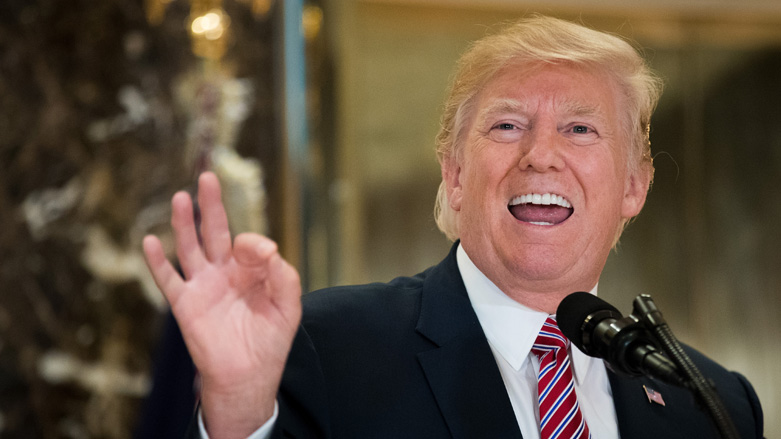Trump: 'No concessions' to Turkey

ERBIL (Kurdistan 24) – US President Donald Trump reiterated an uncompromising position toward Ankara in an interview with Reuters on Monday, vowing “no concessions.”
Trump explained that Turkish President Recep Tayyip Erdogan had double-crossed him over a deal to release Andrew Brunson, an evangelical Protestant pastor, whom Ankara detained in October 2016, on the implausible charge that Brunson had been part of a coup attempt led by a Muslim cleric.
Trump and Erdogan reached that understanding at the Brussel’s NATO summit in mid-July. Trump was to help arrange the release of a 27-year old Turkish citizen, Ebru Ozkan, detained in Israel; Erdogan was to release Brunson.
At Trump’s request, Israeli Prime Minister Benjamin Netanyahu deported Ozkan back to Turkey, but Brunson was only released from prison to house arrest, and the charges against him were not dropped.
“I got that person out for him,” Trump told Reuters. “I expect him to let this very innocent and wonderful man and great father and great Christian out of Turkey.”
Trump’s stance, along with the sanctions and tariffs that the US has imposed on Turkey since August 1, have precipitated a steep drop in the value of its currency.
On Friday, two major international credit agencies, Moody’s and Standard & Poor’s, downgraded Turkish debt into “non-investment grade territory—often called junk,” the Financial Times reported.
However, the credit agencies did not attribute Turkey’s economic woes to the US measures.
“The key driver for today's downgrade is the continuing weakening of Turkey's public institutions and the related reduction in the predictability of Turkish policy making,” Moody’s stated.
“That weakening is exemplified by heightened concerns over the independence of the central bank, and by the lack of a clear and credible plan to address the underlying causes of the recent financial distress, notwithstanding recent statements by the government,” Moody’s report continued.
The lira dropped again slightly on Tuesday, following Trump’s remarks, before Turkish markets closed for the Muslim holiday of Cejini Kurban (Eid al-Adha).
Asked if he was concerned that US pressure on Turkey might damage other economies, Trump told Reuters, “I’m not concerned at all. I’m not concerned. This is the proper thing to do.”
“Until now, I had a very good relationship with the president. I got along with him great,” Trump said. “But it can’t be a one-way street. It’s no longer a one-way street for the United States.”
The big concession that Erdogan wants from the US involves Halk Bank, a major state-owned Turkish financial institution. The US charges that the bank circumvented sanctions on Iran, before they were lifted under the 2015 nuclear accord.
Earlier this year, a Halk Bank executive, Mehmet Hakan Atilla, was found guilty in a trial in federal court in New York. A co-defendant, Turkish-Iranian gold trader, Reza Zarrab, pled guilty and turned state’s evidence, testifying against Atilla.
Zarrab also implicated Erdogan in the sanctions-evasion scheme.
Erdogan’s public position had been that Turkey would not abide by the Iranian sanctions. “When we are approached on that matter—‘You should obey the sanctions, you should obey’—we cannot obey,” Erdogan affirmed in a December 2012 press conference. “This is strategically important for us.”
Notably, it is, again, Turkey’s position that it will not abide by the renewed sanctions that the US is imposing on Iran.
Halk Bank faces potentially crippling US fines for its role in helping Iran evade sanctions, and Turkey wants Washington to provide relief for the bank.
However, the Trump administration maintains that no matter in dispute between Washington and Ankara, including penalties on Halk Bank, can be addressed, until Brunson is released.
A host of issues now divide the US and Turkey, including Ankara’s planned purchase of the S-400, a sophisticated Russian air defense system that would, quite arguably, increase the risk to US and other NATO aircraft operating in Turkey.
As a senior White House official told the Journal, “a real NATO ally wouldn’t have arrested Brunson in the first place.”
